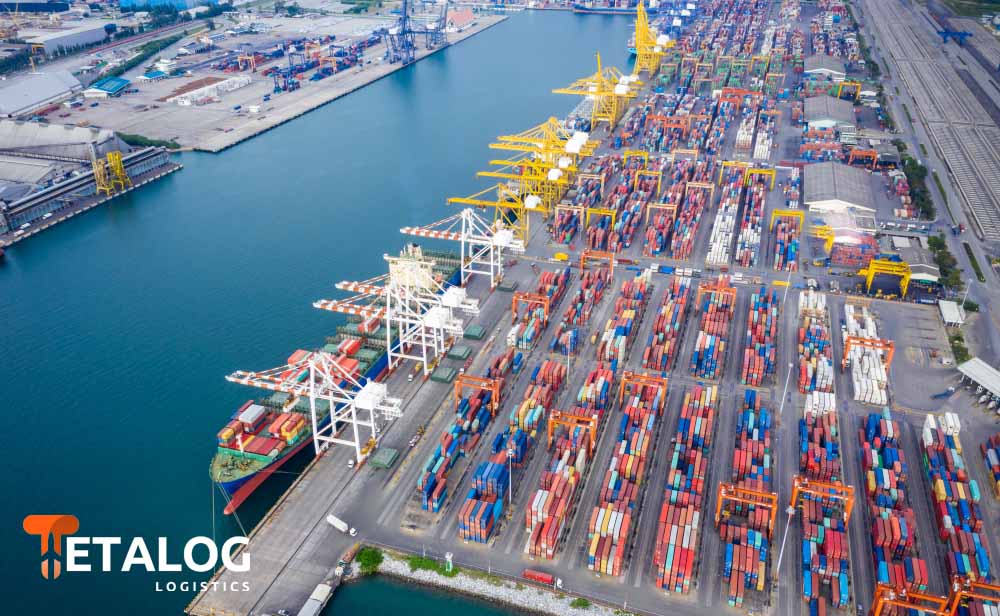
Logistics management is a branch that deals with the planning, implementation, and control of the process from the initial stage of a product in production to the final consumer. This process includes the effective management of tasks such as storage, transportation, packaging, customs clearance, and distribution both domestically and internationally. Logistics management is very important for the efficient execution of production and distribution operations in today's competitive market.
At every stage from the production process to consumption, logistics management ensures that the goods reach the consumer on time and at the most appropriate cost. In this process, businesses gain a competitive advantage by ensuring the best flow of materials along the supply chain.
What is Logistics Management?
Logistics management is the planning and supervision of processes from the initial step of a product during production until it reaches the consumer. At the beginning of this process, transportation and storage of products from their place of production are involved, followed by the transportation process necessary to deliver them to the consumer. Ensuring these steps are carried out smoothly and efficiently is crucial. Managing the processes from production to consumption efficiently is vital for reducing costs and increasing customer satisfaction. It ensures the coordinated execution of all these processes and achieves the best results.
What is logistics? and more can be found by visiting our blog!
How is Logistics Management Done?
Like any management process, logistics management requires correct planning and the successful implementation of that plan to ensure operations are flawless and undoubtedly effective. International logistics management is a more complex process and involves handling many different actions. Logistics management plays a critical role in delivering the product to the consumer in the fastest and most economical way. For the successful management of the process, first, proper planning must be done, then the supply chain must be managed effectively, and finally, warehouse and distribution processes must operate flawlessly. Bringing all these processes together increases operational efficiency and enhances customer satisfaction. Successful international logistics management combines all these elements in the best way, ensuring effective management at every stage of the supply chain.
Types of Logistics Management
Types of logistics management include various activities such as supply management and logistics, distribution and material movement, production logistics and management, reverse logistics, and product returns. Supply management and logistics involve collaboration with suppliers for material procurement and inventory management. Distribution and material movement cover storage, packaging, and shipping of products. Production logistics and management focus on optimizing production processes and cover the processes from material procurement to product distribution. Reverse logistics and product returns involve managing customer return processes and recycling programs. These different logistics management activities are combined to improve supply chain management and logistics efficiency. Well-planned and effective logistics management can help businesses gain a competitive advantage and increase customer satisfaction. Therefore, types of logistics management are of strategic importance for businesses.
- Production chain management and supply chain management.
- Movement of supplies and materials
- Product production logistics and management
- Reverse logistics
Logistics Management Activities
Logistics management activities represent a strategic approach aimed at all stakeholders to procure products, optimize inventory, and increase the efficiency of companies through information and communication technologies. It covers all stages of the supply chain and includes processes from procurement to production, storage, and distribution. These activities are critical for gaining a competitive advantage and ensuring customer satisfaction.
It requires the ability to procure materials at the right time and in the right quantity, plan and implement storage and inventory management, and organize transportation and distribution processes. Additionally, these activities are carried out effectively using information and communication technologies. This makes supply chain processes more efficient and reduces costs, increasing the profitability of companies. Ultimately, logistics management activities help companies gain a competitive advantage and meet customer expectations.
The Importance of Logistics Management
Logistics management is extremely important for the success of a large company. International logistics management also plays an undeniable role in this process. Ensuring that products reach the delivery point on time and undamaged is critical for customer satisfaction and competitive advantage. With professional and expert logistics management, logistics processes can be managed more efficiently and effectively. Conducting storage, transportation, and distribution processes professionally and systematically can reduce costs while increasing customer satisfaction. Therefore, the importance of logistics management is increasing day by day. Professional logistics management is necessary to ensure damage-free and timely deliveries, which enhances companies' competitive advantages and leads to success.





